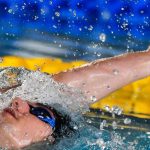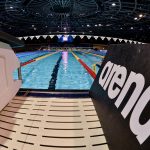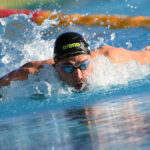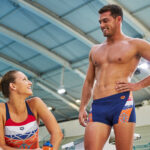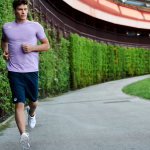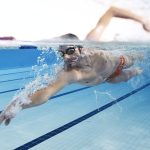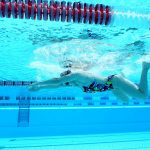Making the most out of your time away from the pool
Distance sucks. And no, we’re not talking about training for the mile (although this does also suck…).
We’re referring to the forced hiatus from swimming pools that many water lovers are experiencing due to lockdown closures and restrictions.
With all of this time spent away from the pool, it’s important to make conscious efforts to cultivate your personal growth. Which is why we’ve compiled some tips for maximizing your productivity as an athlete (and a person in general!) with the help of Health Psychology PhD candidate Bradley Crocker. Keep reading to find out more…
Create separate environments for maximum productivity
The Dual Processing Model is a psychological theory which describes the mechanisms behind decision-making. It suggests that behavioural decisions are partly unconscious and are influenced implicitly by cues in our environment.
This means that, without even realizing it, we are constantly influenced by our surroundings and are continuously forming associations with cues around us. This is why, for instance, you might begin to feel sleepy while taking a quick afternoon break seated on your bed. Your brain internally associates your bed with the act of sleeping, and uses your proximity to it as a cue to trigger all sorts of physiological responses that make you drowsy.
While confined to our homes, it’s especially important to create a clear separation of spaces. Dedicating an area specifically for exercise can help your brain to better understand the difference between ‘work-out’ time and ‘off’ time.
This alleviates some of the difficulty involved in motivating yourself to begin a practice or exercise, since you’re training your brain to say ‘It’s work-out time!’ when confronted with a spatial cue. The same goes for other types of work; doing schoolwork or tasks for your job in a separate space helps your brain to distinguish between work and leisure time.
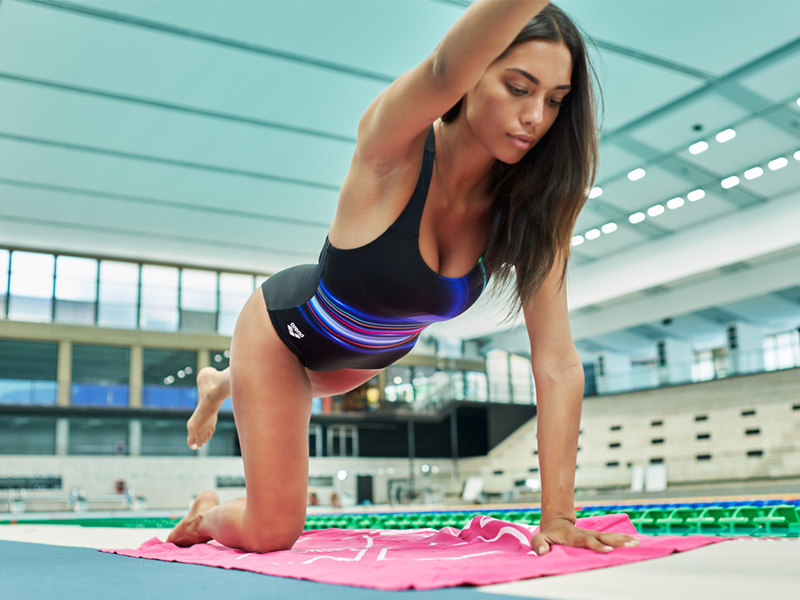
Become a student of the sport
There’s a saying that “everyday is a school day”, and it could not be more spot on. No matter how advanced we are in a sport or stroke, there is always room to learn and improve.
Take this time away from the pool to become a student of swimming. Review the technique of elite swimmers to assess stroke count, underwater kicks, or arm positioning. Get your hands on sport psychology books to train your mental game. Immerse yourself in the sport in order to develop a firm understanding of what good swimming and competing looks like. This way when you’re back in the water you’ll be ready to turn this knowledge into improved results.
Visualization is key!
Visualization is a powerful tool that many of the world’s best athletes use regularly. Start by finding yourself a quiet space and a comfortable position. Mentally rehearse a chosen race from the point of putting your race suit on, to touching the wall at the very end. This helps in the development of the mind-body connection since nerves in our brain will begin to fire just by picturing an action in our head.
Make sure that you’re focusing on all of the details; how many underwater kicks do you do off of the first turn? Are you increasing your leg speed on the third lap? What does your stroke rate look like coming into the final touch? Teasing out the minute details helps with habit formation, and takes away the need to make decisions on the spot in the future during a real race.
Visualization isn’t just for elite level swimmers. Those just learning, or who practice the sport recreationally, can benefit from visualizing technical cues. Picture swimming a lap while reminding yourself of corrections; think of your elbow positioning, or imagine squeezing your arms tighter in your streamline off of the wall.
Articles you may also like…
4 activities to make remote group training more fun

Written by:
Bradley Crocker
Bradley Crocker is a current PhD student in the 'Theories and Interventions in Exercise and Health Psychology Lab' at McGill University in Montreal, Canada. Being a former nationally ranked swimmer himself, his research studies ways of driving student-athletes to engage in healthy behaviour. Though he has since retired from the sport, he applies his extensive knowledge of swimming to McGill University's men and women's varsity teams, where has acts as an assistant coach.
